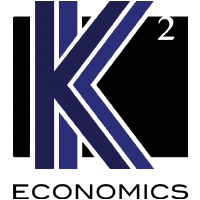How the Coronavirus Will Affect Economic Damages
The COVD-19 virus is a pandemic unlike anything most of us have ever experienced. As the United States appears to be on the downward trajectory of new cases reported, the aftermath of this virus will continue for months, or more likely, years.
There have already been a significant number of lawsuits filed. There are a number of civil-rights lawsuits being filed toward shelter-in-place orders and the banning of protests, rallies and gatherings. In California alone, there are lawsuits filed by small businesses against officials for mandatory business closures, students at the UC systems are suing for a tuition refund and across the United States, wrongful death lawsuits are filed against Walmart, senior-care facilities, and so on.
With unemployment figures soaring to historic levels, the economic impact caused by COVID-19 is massive to say the least. Even when all government-imposed restrictions are lifted, many small businesses will be shut down for good due to the financial strains. Others may only hire back a limited number of employees. It is probable that the number of employment-related lawsuits will increase in the next few months.
As forensic economists, calculating the present value of future economic damages is something we are used to doing all the time. However, the aftermath of COVID-19 brings great uncertainty. Economic recessions and even depressions have always occurred throughout history. There are many theories on economic cycles and how long it usually takes for an economy to recover after a recession. The COVID-19 phenomenon is unique in that within days, a robust, strong economy with high consumer confidence, low inflation, and low unemployment crashed overnight. We are now at historic high unemployment levels, low consumer confidence, and the possibility of higher inflation figures soon. Add to the mix record-low interest rates (the 30-year treasury currently sits at 1.37%, it went under 1% in March), projecting future damages will become much more difficult due to the uncertainties from COVID-19’s short and long-term economic impact.
It is important to analyze all key economic factors over the next few months to see if the recovery of this current recession will occur faster or slower than historic models show. It is also important to see how different sectors, both public and private, perform once the economy fully reopens. As Nobel laureate Nils Bohr said, “Prediction is very difficult, especially if it’s about the future.”
